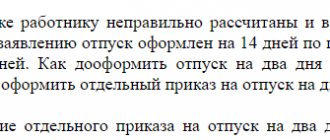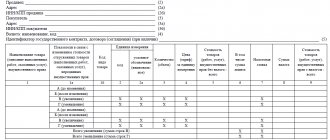Entrepreneurs who are engaged in e-commerce, due to the specifics of this business, in addition to a regular account, in some situations it is necessary to open a special account No. 40821. This procedure became the norm after the adoption of Federal Law No. 103 in 2009, regulating the work of payment agents. For non-professionals, it is worth explaining that 40821 is in fact only the first five digits in an account out of twenty, which clearly indicate its purpose.
Types of special bank accounts
A special account is a separate bank account in which money that is not accountable through a checking account is stored and spent. A special account is designed to separate a company's specific cash flow from the general one for the purpose of:
- spend these funds to solve specific problems, for example, a clearing account;
- separate out amounts that should not belong to the account owner, for example, a debtor's account.
Most often, the source of income for special accounts is payments from individuals or legal entities for services provided to them. The functionality of a special account is the same as that of a current bank account, but all actions with it are subject to certain rules depending on the type of account.
There are many special accounts, and their list is constantly growing. In addition to the 12 accounts listed in the Central Bank Instructions, special accounts also include those specified in various laws, for example, a special account for bankruptcy proceedings.
Select a bank for a special account
When is account 40821 opened?
Examples will help you better understand when an invoice is needed.
Example 1.
Some online store has a certain number of courier positions in its staffing table. In this case, he works without recourse to intermediary services - as a standard business entity. It follows that 40821 is not needed here.
Example 2.
To deliver product items, the store uses some kind of delivery service. Employees of this service receive funds from the client and transfer them to the seller. Accordingly, here we are talking about the work of an intermediary. To pay with it, the store needs a special account. There is no alternative to such interaction with a paying agent.
Important! Electronic wallets such as WebMoney, PayPal, etc. can act as payment agents. But to carry out mutual settlements with them, a special account is also required.
Example 3.
The trading platform itself can also perform intermediary functions, accepting money from customers making purchases. When does this situation happen? When the purchased product belongs to a third party - not this store. In this case, a special account is also mandatory: in this case, the trading platform itself must be registered as a paying agent.
Bank payment agent or subagent account
You must open this special account if you take on part of the banking functions, for example, loan payments. Namely, on behalf of the bank you accept payments from individuals. persons (including using self-service devices), give them cash or provide electronic means of payment.
Available operations on this account:
- crediting cash received from individuals. persons;
- accepting non-cash transfers from special accounts of operators;
- transfers to recipient accounts.
You can open several such special accounts in any banks.
Features of the procedure for opening such an account
In general terms, opening a special account No. 40821 occurs in approximately the same way as opening an ordinary account. You must write the application form as required and attach a specific list of documents to it. Among them:
- a photocopy of the agreement for accepting payments from individuals or another document that confirms the status of the paying agent;
- a photocopy of the state registration certificate of the legal entity;
- a photocopy of a document indicating registration with the Federal Tax Service (tax service);
- photocopy of an extract from the Unified State Register of Legal Entities;
- special bank account agreement (the bank must prepare it);
- a photocopy of the decision to create a legal entity (it must be certified by the director’s signature and official seal);
- questionnaire of a bank client and other individuals who have the right to manage the special account being opened (in particular, using online banking);
- Properly certified photocopies of passports must be attached to the application forms;
- an order to maintain accounting directly by the manager and provide payment documentation to the bank with one signature (this is necessary when the organization does not have a chief accountant position on staff), etc.
The specific contents of the required package of documents should be clarified with a bank employee or other relevant specialists. Here, a lot depends on the format in which the company exists (LLC or individual entrepreneur), whether it is a resident or non-resident. And finally, you need to understand that a special account can be opened by a paying agent, a subagent, or a supplier - and in each case, you will need your own set of documents.
Paying agent account
Designed to record payments from individuals. persons for the services they received, for example, payments for housing and communal services. This special account includes:
- cash deposit;
- accepting transfers from agent special accounts;
- transfers to special accounts of other agents/service providers.
We recommend: Banks with the cheapest opening and maintenance of a current account for individual entrepreneurs and LLCs.
Clearing bank account
It meets the same goals as the previous special account, but here the owner is already a clearing organization. It acts as a controlling element in clearing transactions and is obliged to open accounts for the placement of assets of clearing participants, central counterparties and other persons.
As a general rule, the clearing company does not have the right to transfer its own money to this account. Since the amount in the account does not belong to its owner, clearing accounts are prohibited from seizing or restricting transactions on them.
The whole truth about account No. 40821
On September 29, 2011, the Law “On the National Payment System” came into force, which introduced changes in the relationship of online stores with financial intermediaries between them and customers - courier services and payment systems. Despite the fact that almost three months have passed since then, not all participants in the online commerce market have yet brought their activities into compliance with the new requirements.
In particular, we are talking about the need (or lack thereof) to open a special current account No. 40821. Having learned about the interest in this issue from our readers, we decided to clarify the situation by turning to the primary source in the legislation and taking comments from lawyers and representatives of online business.
Letter of the law
So, account No. 40821, or, as it is also informally called, “408 account.” Here is what is said about it in the law of June 3, 2009 N 103-FZ “On the activities of accepting payments from individuals carried out by payment agents.”
To whom and for what?
Article 4, paragraphs 14 and 18, states that when accepting payments, payment agents are required to use a special bank account to make payments. Also, this account should be used by suppliers of goods when making payments to the paying agent.
Let's make a small clarification. A payment agent is a company that acts as an intermediary between an online store and a buyer. It could be, as mentioned above, a courier service, a company that owns a payment terminal, or a money transfer system. In our case, the supplier of goods is understood as none other than an online store.
For what operations?
In paragraph 19 of the same article 4, in relation to online stores, the following information appears: account No. 40821 is the link between the supplier of goods and the payment agent, funds are transferred from it to other accounts of the company, and payments from customers can also be directly credited to it. Moreover, paragraphs 18 and 20 severely limit the freedom of action of online stores. They indicate that you cannot interact with the payment agent except through account No. 40821 and that no other operations other than the above are possible with it.
Who will check?
And, in fact, our ever-vigilant Federal Tax Service will check. Article 7, paragraphs 4 and 5, states that it is she who exercises control over the mutual settlements of paying agents and suppliers, including checking the presence of account No. 40821 and the completeness of all the above-mentioned operations through it. At the same time, the tax inspectorate can clarify all this directly with the bank, without contacting the audited online store.
Closer to practice
Experts commented on the effect of the new law: Elena Denisova
, head of commercial practice of the civil law department of legal, and lawyer
Oleg Sukhov
, leading lawyer of the First Capital Legal On the national payment system, suppliers of goods must use a separate bank account (accounts) No. 40821 to interact with legal entities that have entered into an implementation agreement with the supplier activities for accepting cash. Each organization opens this account in its servicing bank.
Elena Denisova calls for attention to the following: if transit account No. 40821 was previously used to transfer funds to a current account, it could only be used until September 29, 2011. After this date, only special bank accounts No. 40821 must be used. Non-cash funds can be transferred to this account from the organization’s own accounts opened with another credit institution and used to deposit cash received from payers or to replenish working capital (security deposit) in the payment system.
At the same time, as Ms. Denisova notes, the provisions of the Federal Law of June 3, 2009 No. 103-FZ do not apply to relations related to the activities of conducting non-cash settlements (clause 4) and in accordance with the legislation on banks and banking activities (clause 5). That is, if all settlements with customers are carried out directly through the bank (non-cash funds are transferred from the client’s current account directly to the online store’s current account), the requirement to open a special account 40821 does not apply to such an online store.
Oleg Sukhov, in turn, commented on the applicability of the provisions of the law to online stores in specific situations.
If the online store has full-time couriers
and accepts cash payment from customers upon delivery, then he is an ordinary business entity and should not open this account, since in this case there is no intermediary agent.
If an online store sends goods with a third-party courier service
and receives cash from the client through it, then in this case the courier service is an intermediary, therefore for settlements with this intermediary you must have a special current account.
If the online store accepts payment through intermediaries
(QIWI and other payment systems), then a special current account is required for settlements with them.
If the online store is an intermediary agent
, that is, he is not selling his own goods (he is not its owner until the moment of sale), then he is obliged to open such an account for settlements with buyers and suppliers, since he acts as a paying agent.
Opening order
The procedure for opening account No. 40821 does not differ significantly from opening a regular current account. The following documents must be attached to the application for opening this account:
• Special bank account agreement in two copies (drawn up by the bank);
• a copy of the Agreement for accepting payments from individuals or another document confirming the status of the payment agent/bank payment agent;
• a copy of the Charter with all amendments and certificates of registration of amendments (if the amendments were registered before July 1, 2002) or Certificates of entry into the Unified State Register of Legal Entities;
• a copy of the Memorandum of Association / Agreement on the establishment of the company (if any);
• a copy of the Certificate of State Registration of a legal entity;
• a copy of the Certificate of registration with the tax authority;
• a copy of the Extract from the Unified State Register of Legal Entities;
• a copy of the Information Letter from the statistical authorities on registration in the Unified State Register of Industrial Organizations (assignment of OKVED codes);
• a copy of the decision (Protocol) on the creation of a legal entity (certified by the seal of the organization and the signature of the head);
• Card with sample signatures and seal imprint (notarized or issued by a bank);
• Questionnaire of the Bank’s client, as well as questionnaires of individuals who have access (authority to dispose) to a bank account, including authority to dispose of a bank account using remote banking technologies (Bank-Client, Internet banking) (on bank letterhead) and appropriate duly certified copies of their passports;
• a copy of the Certificate of Ownership (Lease Agreement) for the occupied premises;
• Orders on the appointment of a manager and chief accountant (certified by the seal of the organization and the signature of the manager);
• powers of attorney for persons who, on an equal basis with the manager, have the right of first signature (if the latter’s powers to manage the account are not specified in the Charter), a copy of the proxy’s passport;
• Order (instruction) on carrying out accounting personally by the head of the enterprise and submitting payment documents with one signature to the bank (if there is no chief accountant on the staff of the enterprise);
• power of attorney to submit payment documents to the Bank and receive account statements, a copy of the authorized person’s passport.
But what really?
However, as practice shows, even an obligation in relation to the law does not always become the basis for changing the usual payment system. Timofey Shikolenkov commented on the innovation
, representative of the online store "Audiomania".
“The need to adopt a law that would regulate the relationship between suppliers and agents is undeniable. Unfortunately, in the vast majority of cases, laws applicable to a narrow field of activity, such as e-commerce, are adopted without consulting market experts.”
, - Mr. Shikolenkov appreciated the initiative of legislators.
According to Shikolenkov, he uses a different scheme for mutual settlements with payment agents, which does not involve the use of account No. 40821. Its essence comes down to a tripartite agreement between the supplier, the bank and the paying agent. Under this agreement, all payments between the bank and the agent, including the collection of remuneration by the agent, are carried out without the involvement of the supplier. Let us recall that the law “On the National Payment System” obliges suppliers of goods to use a separate bank account to interact with legal entities that have entered into an agreement with the supplier to carry out activities for accepting cash. Thus, if a similar agreement is created between a bank and a company that receives funds from customers of an online store, account No. 40821 turns out to be unnecessary.
As Timofey Shikolenkov comments, “there were no difficulties with adapting the activity; it was only necessary to conclude a new agreement. Previously, we had an agreement with a paying agent, now with a bank that transfers money to us.”
.
A similar scheme is described in the letter of the Central Bank of the Russian Federation dated November 21, 2011 N 166-T. In particular, it states the following: “Credit organizations have the right to carry out a banking operation for the transfer of funds, the recipient of funds for which may be the supplier or a person authorized by him, including a paying agent, provided that the individual indicates in the order to transfer funds to the supplier or a person authorized by him as a recipient of funds. The specified transfer of funds is carried out by a credit institution, both in the presence of an agreement with the supplier or his authorized person, and in the absence of the specified agreement, to the bank account of the supplier or his authorized person, which is not a special bank account.”
.
Advertising on the website
Payment system guarantee fund account
Banks working with payment systems, for example, MIR, must form a special fund from personal contributions to a separate account (to cover possible risks). For this purpose, the payment system operator opens a payment system guarantee fund account. He also sets the size of the transfers. If the bank stops working with the payment system, its payment is returned.
Such special accounts can only be located in banks or non-banking organizations that do not have the right to place raised money to generate income, for example, in the Central Bank. Accounts are not subject to seizures, restrictions or penalties due to debts of the operator or system participants.
We recommend: Rating of banks by cash settlement services for individual entrepreneurs and legal entities with customer reviews.
Tabular part of the document
The tabular part of the document consists of several tabs:
- Goods and services;
- Returnable packaging.
On the Goods and Services , display the list of goods, works (services) for which an invoice has been issued.
the Returnable containers if the receipt of goods and materials is planned in returnable containers.
Containers that are not returned to the supplier are accounted for as inventory items and are indicated on the Goods and services .
Enter positions into the table section using the Add or the Selection .
Find out more about the Methods for selecting items.
You can also add a row with completely filled data to the tabular part by copying a row from another tabular part with the same functionality.
Learn more about Filling out a document by copying lines.
Change button to adjust the price for all positions of the document according to the specified algorithm.
Find out more about price changes in the document.
Escrow account
To insure against the risk of non-payment when concluding an agreement for the supply of products/provision of services, you can use an escrow account. The work flow is as follows:
- The buyer opens a special account and deposits the agreement amount into it.
- The bank is blocking the money.
- The seller fully fulfills its obligations.
- The money is transferred in his favor.
If the terms of the transaction are violated, the money is transferred back to the buyer. Unless otherwise agreed, neither party can dispose of the account.
Responsibility for the special account
For carrying out the activities of a paying agent without opening a special account, administrative liability is provided in the form of a fine under clause 2 of Art. 15.1 Code of Administrative Offenses of the Russian Federation (40,000 - 50,000 rubles for companies, 4000-5000 for officials). A similar sanction may be applied if violations are identified in its use, for example, the transfer to it of not the entire amount of funds received in favor of the supplier, or other violation of the requirements for fulfilling the duties of a paying agent provided for by current legislation.
Collateral account
This special account is also opened to protect the owner from the risk of not receiving money. The company's funds are deposited into it in the amount of the pledge (by agreement with another company or bank), and profits from the pledged property, insurance payments and other types of income are also transferred. The pledgor has free use of the account, but work with it may be limited if the result is that the balance becomes less than the secured obligations.
You, as a supplier of goods/services, can open such an account together with the client company if it is in dire financial straits. Money in a collateral account is protected from seizures and seizures by government agencies.
Purpose of the document
Entering the document Invoice from a supplier allows you to significantly simplify document flow in 1C, as well as analyze the fulfillment of obligations on each side of the transaction.
See also Analysis of payment on an invoice and Analysis of receipt of goods and materials (works, services) on an invoice.
Based on the Invoice from Supplier , the following documents will be automatically filled in:
- document Power of Attorney;
- document Receipt (act, invoice);
- document Payment order;
- document Write-off from current account;
- document Cash withdrawal;
- document Invoice to the buyer.










